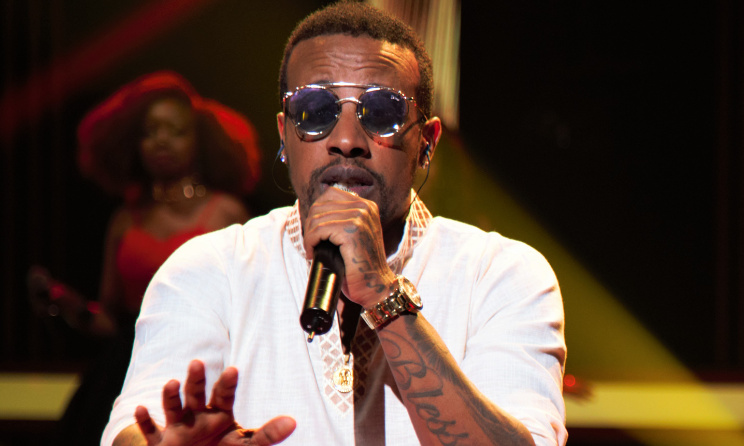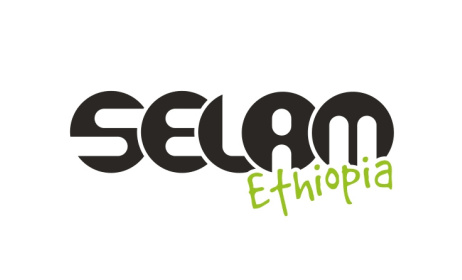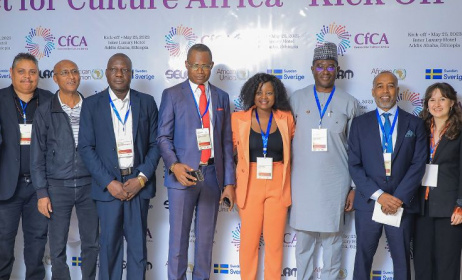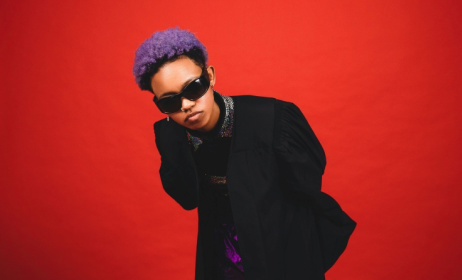The tale of Ethiopian hip hop – part 1
By Desta Wegayehu
Steeped in history and tradition, the ancient East African country of Ethiopia is home to a growing hip hop culture that gives a voice to talented young people. Hip hop – primarily in the form of rap music – has offered opportunities and changed lives throughout the country. The capital city Addis Ababa was the main entry point for hip hop, with the pioneering artists citing influences such as Tupac, Eminem, Jay-Z and LL Cool J, although the earliest manifestations of contemporary rap date to barely 15 years ago. By one artist’s estimate, about 90% of high-school and college students now identify with this genre.
 Lij Michael fuses traditional elements into hip hop. Photo: Coke Studio Africa
Lij Michael fuses traditional elements into hip hop. Photo: Coke Studio Africa
The rapid influx of the global youth culture has been the cause of consternation among parents and conservative members of society who worry that foreign influences will disrupt traditional values and practices. But Teddy Yo, the country’s pre-eminent rapper, says this is a misconception. “We didn’t steal hip hop from America,” he says. “It came up from our own culture”.
Teddy points to the ancient practice of shilelakerato where warriors would take turns rapping, backed by heavy traditional drum beats before engaging in warfare. “It was essentially battle rap”, he says. The lyrics nowadays generally focus on themes such as the value of hard work and social issues such as poverty, materialism and education. There are, of course, numerous tracks praising the charms of pretty women.
In the short time since its introduction, hip hop has grown due to pioneering MCs such as Algorash, Mad Boys, Abyssinia Boys and Afaris. “Basically, they just took the music from the US and made mixtapes,” Teddy says. “It wasn’t too popular at that time.” Other artists like Faf Crazzy (Lij Michael) and the Gamo Boys skilfully blended traditional beats and instruments into their own unique styles. Although some artists’ lyrics are in English, most rap in Amharic or any of the more than 80 local languages in order to better reach their audiences.
Teddy Yo is among the early internationally prominent Ethiopian rappers. In addition to tours throughout his own country, he has performed in Europe and the Middle East. He was first drawn to hip hop in 2005 when he listened to LL Cool J, but he says that due to lack of other Ethiopian rappers at that time, he was self-taught. “I just looked at my own culture and my own life.” His tracks ‘My Life’ and ‘Be Yourself’ shed light on the obstacles young people face, such as poverty and lack of opportunity. “It is difficult here and we all have to hustle hard,” he says.
Due to financial constraints, Teddy sold his first album to a record label which 15 days later went out of business. “So, my music never really had a chance to get out there,” he says. Another setback occurred in the form of harsh media criticism. Teddy currently works with DJ Miller, who explains that “Every two to three months they criticise hip hop. I think they’re afraid of us."
Undaunted by these challenges, Teddy continued to focus on his work and the evolution of his music. “I need money for the music only,” he says. “It’s not about cars and clothes.” But the hard work has paid off. Teddy’s second album Prisoner is scheduled for release in 2018. The title, he says, refers to someone who is a prisoner of culture. The 18 tracks contain harder beats than his earlier work and 10 artists, including Jungle Crew and Jalud, are featured. “Over the years, a larger fan base for hip hop – and for my music in particular – has grown and so I think it will be very successful,” Teddy says.
The “hustle hard” mantra is taken seriously by other established MCs such as DJ Same, Jungle Crew, Jolox, Yoni Yoye and YapiMapi. DJ Same, for example, has a wealth of varied industry experiences including a deejaying gig for contestants on Ethiopian Idol, endorsements for a local sneaker company, performing as a member of the group Afro Sent and hosting the African Vibes hip hop radio show on 98.1 FM. He also has been involved with projects to instil leadership qualities in the youth and combined these with musical celebrations. He organises concerts, dance performances and other events, and like Teddy, has performed in the United Arab Emirates and Qatar.
DJ Same’s association with Teddy Yo dates to their high-school years but their creative collaborations began after each of them had produced a commercially successful song. Same’s single ‘Marengecha’ was released in 2007 and was popular on radio programmes and in clubs. “It’s about the transition from our parents’ generation to ours,” he explains. Teddy had already released his hit single ‘Gurageton’ and the two decided to work together on songs such as ‘Wuraj Ale’ which became a hit upon its release in 2009. The two progressed to making video collections and performing at clubs, schools and other venues to expand their fan base. With his brother Freezer, an accomplished videographer, DJ Same is currently launching DJ Same Productions. “Now we’re coming with new styles that give a DJ flavour to the music. I always dream big,” he says.
Jukebox the Illustrious is one of the few Ethiopian rappers who have lived outside the country. Jukebox, who was born and raised in Addis Ababa, spent seven years at the University of Texas. "The US was a journey of discovery. It’s a global society and it broadened my scope," he says. "There were so many international students so I learnt a lot outside the classroom."
Nonetheless, at first he experienced loneliness and racism, saying that while Ethiopia is a communal society, the US is more individualistic. “But it was okay” he says. “It gave me time to reflect and I started to vent on paper.”
Jukebox returned to Ethiopia in 2003. He worked in various management positions in his family’s businesses for two years. “I tried to quit hip hop but I couldn’t. It’s my gift,” he says. “Deferred dreams become nightmares.” After some soul searching he mustered the courage to tell his family, which now supports his choice.
But the transition hasn’t been easy. Jukebox was dismayed to find that “appreciation of art and music is still in its infant stage, even though we were probably the first to beat the drums".
"I’ve heard people say that they would rather buy a coffee than a CD, so even the neighbouring countries are ahead of us,” Jukebox says. The scale of success is one significant factor. “When an album is banging here it means 50 000 copies sold. You can’t have an industry like that.” Another problem, he says, is that “there’s no record label here to groom and promote the artists". "The artist gets almost nothing, so whatever I’ve learnt I’ve learnt the hard way.” But with his musical partner Woah, Jukebox has made six video clips. They have also performed in Addis, have an album in the final stages of production and plan to start touring.
This is part 1 of The tale of Ethiopian hip hop. Visit Music In Africa tomorrow for part 2. This article first appeared on Addis Insight.

































Comments
Log in or register to post comments